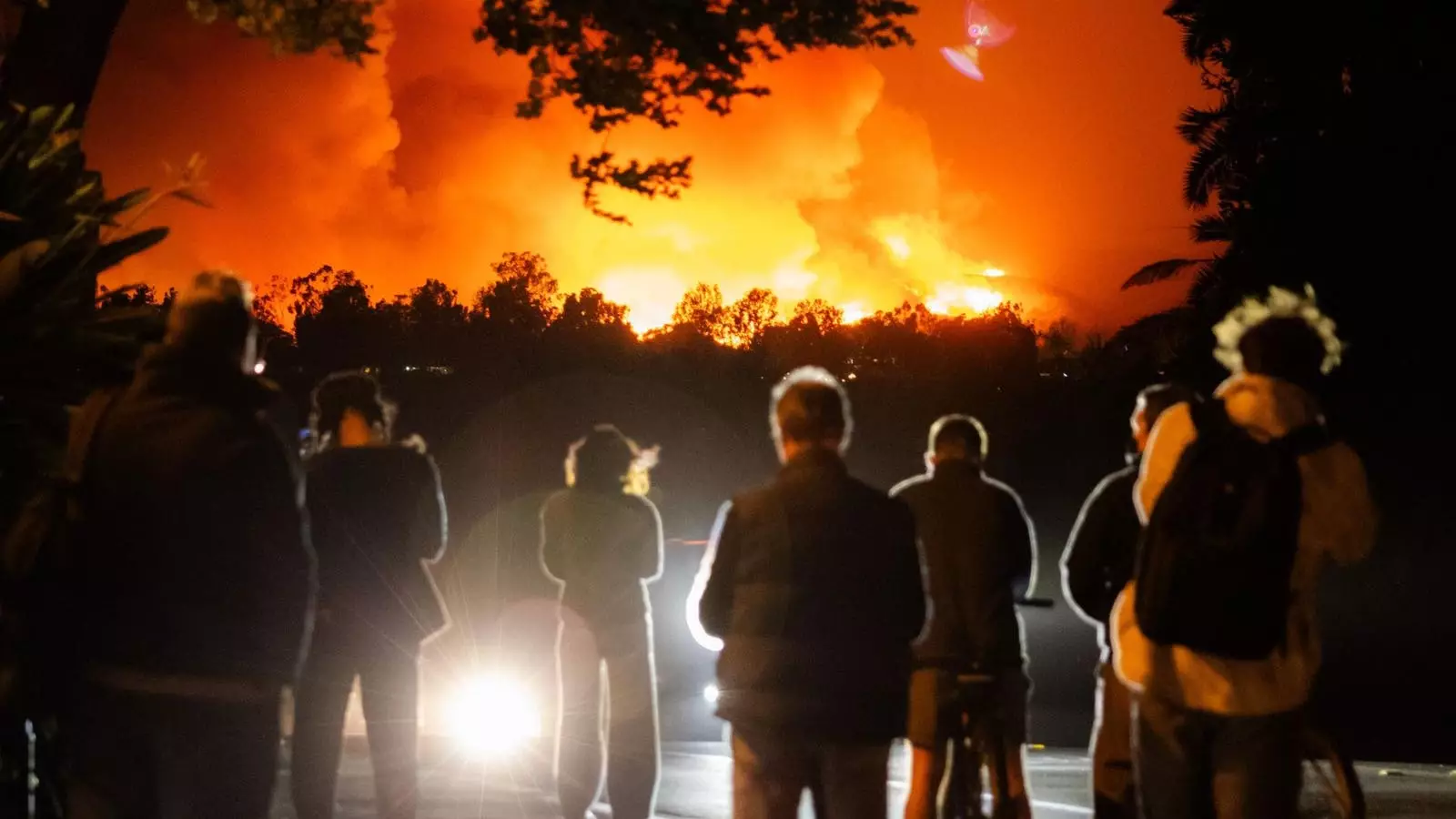As 2025 dawns, Southern California finds itself engulfed in wildfires that echo the grim reality of escalating climate change. These flames, raging through beloved landscapes, are more than just a seasonal anomaly; they signal a significant shift in how climate-related disasters are manifesting. The alarming frequency and intensity of these winter wildfires disrupt our lives and jar our collective consciousness, rendering New Year’s celebrations a distant memory for many who are losing their homes and communities.
The fires serve as a stark reminder that climate change doesn’t heed human calendars or wishes. Its impacts are tangible and immediate, infesting the air with smoke that carries not only the scent of burning flora but the weight of despair and loss for countless families. Traditional understandings of wildfires as a necessary natural process for ecosystem rehabilitation are crumbling. The reality of contemporary fires suggests a growing anomaly, raising questions about environmental management and community preparedness in an era where nature seems increasingly volatile.
Having witnessed the beauty and vibrancy of Los Angeles, the heartache of watching this city, adored by so many, fall victim to such calamity is overwhelming. The scenes of destruction are hard to escape, reminiscent of a nightmare playing on repeat. Nonetheless, amid the ash and chaos, there emerges a flicker of hope; stories of resilience and community support spring forth, reminding us of the strength found within us when confronted with adversity.
Community and Solidarity in Times of Crisis
In the face of such despair, Southern Californians are demonstrating remarkable unity. Countless individuals and organizations are stepping up, providing food and shelter for those displaced by the flames. Initiatives like mutual aid networks and community kitchens are tirelessly working to feed first responders and strengthen neighborhoods ravaged by fires. The acts of kindness shown by local chefs and volunteers emphasize the idea that compassion knows no bounds, often rising to meet a crisis head-on.
This resilient spirit highlights a critical aspect of disaster response: solidarity. Social bonds amplify the resolve to push through difficult times, reminding all of us that, regardless of personal loss, we are part of a larger community fueled by empathy. For those inspired to contribute, myriad avenues exist to support affected families, whether through charitable donations to organizations providing direct assistance or volunteering to help on the ground.
Understanding the Underlying Issues
For many, this crisis transcends mere disaster response; it furthers discourse around food security in a world increasingly reckoning with climate change. The erratic weather patterns challenge traditional food systems, exacerbating issues of access and equity. The personal stakes are elevated for many, as food insecurity intertwines with environmental calamity. The drive to uncover these connections forms the crux of important conversations that need to occur surrounding our food systems and climate resilience.
In light of this, awareness and education have become paramount. Engaging with the community on a deeper level—through events focused on sustainability, local agriculture, or literature that explores the intersections of these issues—is crucial. Participating in such dialogues can illuminate pathways to resilient food systems that withstand environmental stressors while catering to those most vulnerable.
As we navigate the aftermath of these wildfires and brace for a tumultuous year ahead, the collective responsibility shared by individuals, communities, and institutions cannot be overstated. Understanding the gravity of climate change, advocating for effective policies, and fostering environmental sustainability are paramount to mitigating future impacts.
These challenges may seem daunting, but the outpouring of support and community resilience witnessed amidst the despair offers a glimpse of the strength inherent in humankind. Ensure your voice is heard—whether by contributing to causes that resonate with you, educating others, or holding accountable those in power to prioritize the fight against climate change.
While 2025 returns with heavy burdens, the unwavering spirit of community coupled with an understanding of our shared fate can kindle hope for a future where cooperation fosters recovery and resilience. Our journey is one informed by the past, present, and aspirations for a more sustainable future. After all, we can emerge not just as survivors but as stewards of our world.


Leave a Reply